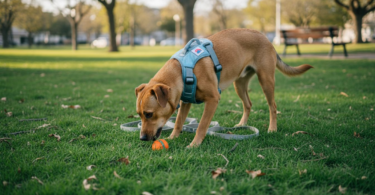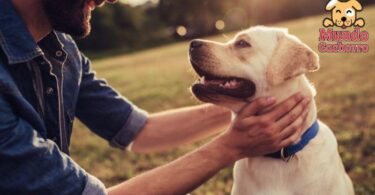Dogs are known for their loyalty, affection and ability to interpret our emotions. However, they are also highly sensitive creatures, especially with regard to their sense of hearing. Loud noises can have a significant impact on their well-being, causing stress, fear and unwanted behaviors. In this article, we tell you why loud noises upset dogs so much and how we can help them handle these situations.
Loud noises and effect on your dog
To understand why loud noises affect dogs, it is essential to know a little about their hearing. Dogs have a much wider range of hearing than humans. While humans can hear sounds in the range of 20 Hz to 20,000 Hz, dogs can pick up frequencies from 40 Hz to 60,000 Hz. In addition, they have the ability to move their ears to locate the source of the sound precisely, which makes noises more prominent and often more disturbing to them. It is important to know that sensitivity to noise in dogs varies according to breed, age and previous experiences. Smaller breed dogs and puppies tend to be more sensitive to loud noises. Traumatic experiences or insufficient socialization during the first months of life can also increase a dog’s sensitivity to loud sounds.
How to help your dog overcome stressful situations
Common reactions
When dogs are confronted with loud noises, such as thunderstorms, fireworks or construction noises, they may show a variety of reactions. These include tremors, excessive barking, destructive behavior, attempts to escape and, in extreme cases, they may even lose control of their bladder or bowels. These reactions are manifestations of their fear and stress.
Stress and anxiety
Stress and anxiety are common responses in dogs confronted with loud noises. Chronic stress can lead to long-term health problems, such as digestive disorders, immune system problems and behavioral changes. Loud noise anxiety can become a recurring problem, where the dog anticipates the noise and shows signs of stress even before the event occurs.
Why dogs cry at night
Destructive behaviors
Some dogs can become destructive when frightened. They may try to escape by scratching on doors or windows, chewing on furniture or carpets, or digging in an attempt to find a safe place. This behavior is not only detrimental to the household, but can also result in injury to the dog.
Attempts to escape
Extreme fear can lead dogs to try to escape, which can be dangerous. They may flee in panic and get lost, or be run over by vehicles. It is essential to ensure that dogs are in a safe environment and that they cannot easily leave when confronted with loud noises.
Signs to know if your dog is sad
Strategies for managing sensitivity to loud noises
Providing a safe haven
A safe and comfortable space can help your dog feel more protected during noisy events. It can be a quiet room, a transport box or an area with their toys and a comfortable bed. The use of soft music or white noise can also help to dampen disturbing sounds.
Desensitization and counterconditioning
These training techniques can help reduce your dog’s sensitivity to loud noises. Desensitization involves gradually exposing the dog to noise at low levels and slowly increasing it over time. Counterconditioning associates noises with positive experiences, such as treats or games, to change the dog’s perception of the sounds.
Soothing products
There are several products on the market designed to calm dogs during stressful events. These include pressure vests, synthetic pheromones, and natural supplements. Consulting a veterinarian can help you choose the best product for your dog.
Medical therapy
In severe cases, where fear and anxiety significantly interfere with the dog’s quality of life, medication may be necessary. Veterinarians may prescribe anxiolytic or sedative medications to help dogs better manage their responses to loud noises.
Understanding and support
Understanding why these noises are so disturbing to them is the first step in helping them to better handle these situations. With the right approach, including creating a safe environment, training techniques and, if necessary, medical intervention, we can help our canine friends feel safer and calmer during noisy events.







